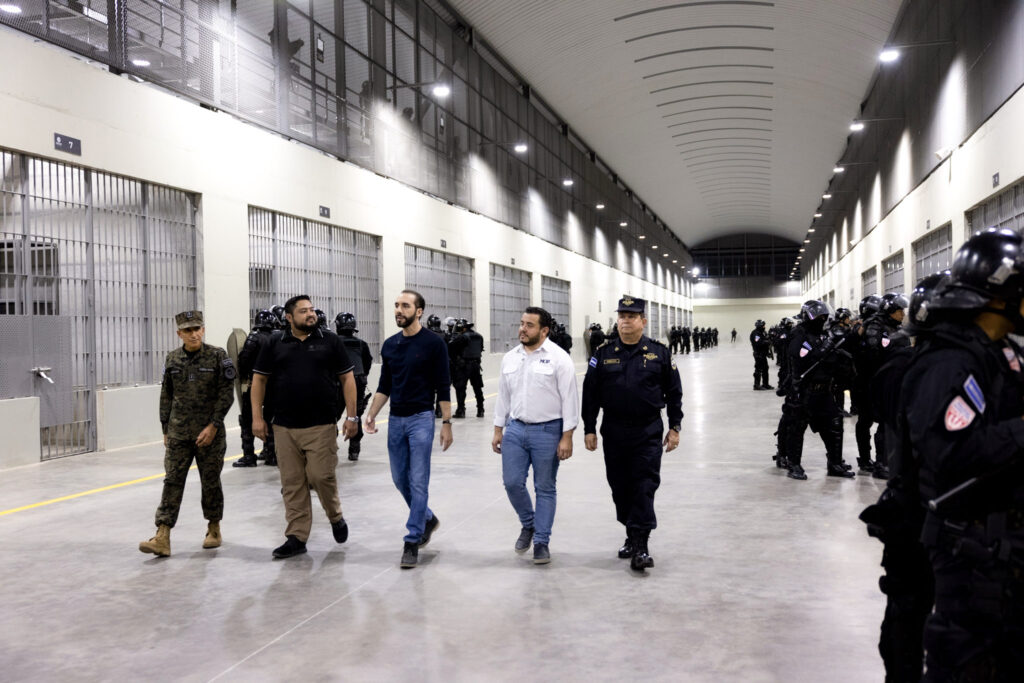This post is also available in: English Español
It’s difficult to talk about public safety in Latin America today without talking about El Salvador and its president, Nayib Bukele. In a region where concerns about crime are running high, and organized crime groups are expanding their reach in many places, El Salvador stands out. Under Bukele’s watch, the country’s homicide and extortion rates have tumbled, and whole neighborhoods, once dominated by armed gangs, are now safe for residents to walk around.
But those results have come at a terrifying cost: tens of thousands imprisoned without due process, a constantly extended state of emergency, and acute concentration of power due to nonexistent checks and balances. Few pause to wonder if the gains against crime are sustainable, or to count up the costs to democracy and civil liberties. And El Salvador isn’t the only case that suggests that when living in fear, Latin American citizens are increasingly willing to sacrifice rights in exchange for safety. The percentage of people in our region willing to accept a non-democratic government if it resolved their problems increased from 46 per cent in 2016 to 51 per cent in 2023, according to Latinobarometro.
As politicians around the region make dubious promises to bring Bukele-style mano dura policies to their home countries, it’s worth asking—is there a workable alternative for Latin America today? Can public security be improved without a massive cost to individual rights?
The answer is a tentative yes. No model is flawless or automatically replicable, but in Guatemala, São Paulo, Brazil, and Bogotá, Colombia, a combination of effective investigation and punishment with social policies aimed at social inclusion has brought tangible results without compromising the rule of law. It’s worth looking at these examples to see how results were achieved.
[…]


